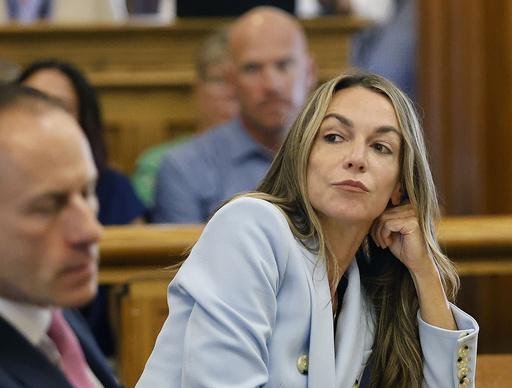Karen Read shared in an interview that the months-long murder case she was involved in left her feeling like she was in “purgatory” and under constant stress. This came after accusations of intentionally hitting her boyfriend, Boston police officer John O’Keefe, with her SUV during a snowstorm in January 2022. The trial, lasting two months, ended in July with a mistrial being declared due to jurors being deadlocked after five days of deliberation. The new trial for the case is set to begin on January 27, 2025, after Judge Beverly Cannone rejected a defense motion to dismiss several charges.
Prosecutors alleged that Karen Read and O’Keefe, who was a Boston police officer for 16 years, had been drinking heavily before the incident. They claimed that Read hit O’Keefe with her SUV and drove away, leaving him for dead. An autopsy revealed that O’Keefe passed away due to hypothermia and blunt force trauma.
Karen Read admitted to having four drinks that evening but stated that she felt okay to drive. She expressed feeling an “immense sense of dread” while searching for O’Keefe, fearing he might have been struck by a plow. On the night in question, Read dropped O’Keefe off at a party at the home of Brian Albert, a fellow Boston officer.
The defense team contended that O’Keefe was actually killed inside Albert’s home and then moved outside. They argued that investigators honed in on Read because she was an “easy target,” diverting attention away from law enforcement officers who could also have been suspects.
Following the mistrial, Read’s lawyers revealed that four jurors had disagreements specifically on a charge of manslaughter, with a unanimous agreement that she was innocent of second-degree murder and leaving the scene of a deadly accident. The defense team believed that the mistrial was abrupt and requested more questioning of the jurors before it was declared.
Judge Cannone dismissed claims of double jeopardy, stating that since no verdict was announced in open court, a retrial would not violate this legal principle. Prosecutors opposed what they deemed an “unsubstantiated and sensational post-trial allegation” based on hearsay and inaccurate information on jury deliberations.
